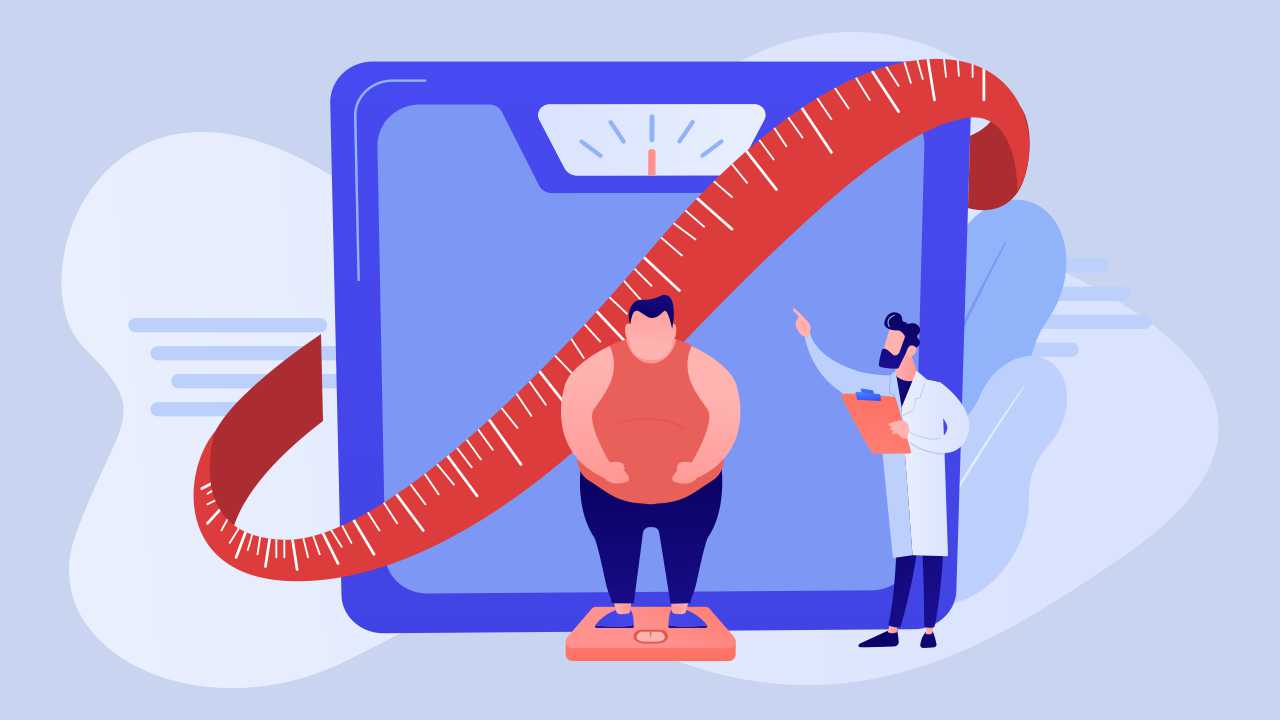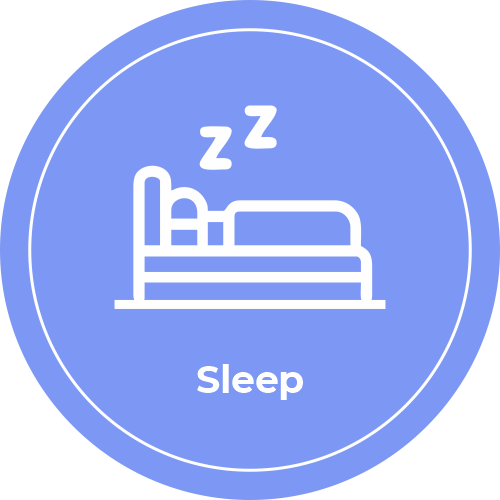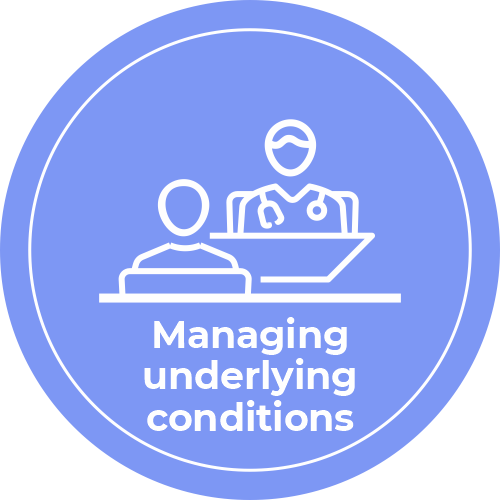
How to Manage Obesity

It is a challenging task to manage obesity. You need to have the right approach to reverse obesity and keep it at bay. Here are a few ways to manage obesity.
Obesity management is more than keeping the weight off
Fad diets might help to lose some weight quickly. But it is important to make long-term changes in your overall lifestyle to achieve healthy and sustainable weight loss. You need to make fundamental modifications to your dietary and exercise habits to manage obesity.
The key to weight loss is calorie deficit, ie, burning more calories than you consume, creating a negative energy balance. You can achieve a calorie deficit by either eating fewer calories (reducing your food intake) or burning more calories (increasing your physical activity). An ideal way to achieve this would be by following a combination of both, ie, regulating your food intake and exercising regularly.

Changing your eating habits and consuming fewer calories is a crucial step towards obesity management. Making drastic adjustments in your diet can be challenging to sustain for a longer period, so it may be helpful to start by making small changes, which will help you get accustomed to them. Remember that these small alterations can eventually add up to big benefits. Your dietary habits apply to both the food and beverages that you consume. Here are a few recommendations that you may follow:
1. Include all macronutrients
Your meals should comprise carbohydrates (carbs), proteins, and fats but in the right proportions. Target to get not more than 50% of your energy intake from carbs, 20%-25% from proteins, and the remaining 25%-30% from fats.
2. Replace simple carbs with complex carbs
Substitute refined and processed foods such as cookies, biscuits, and table sugar with whole grains, oats, lentils, and pulses. Go for the least processed options.
3. Add a variety of fruits and vegetables to your meals
Have three to four servings of vegetables and one to two servings of fruits every day. You may consider one full apple as one serving.
4. Consume 1g-1.5g of protein per kg of your body weight each day
Good protein intake is important especially when you are trying to lose weight. Ensure that the majority of your protein intake comes from lean protein sources such as skinless chicken, seafood, eggs, and legumes.
5. Include unsaturated fats in your daily diet intake
Broadly, the two types of fats are saturated and unsaturated fats. Foods like butter, cheese, biscuits, red meat, and fried foods tend to be high in saturated fat. Sources of unsaturated fats include almonds, fenugreek (methi) seeds, chia seeds, pumpkin seeds, sunflower oil, peanut oil, avocado oil, and olive oil.
6. Restrict intake of aerated beverages and beverages that contain added sugars
Almost all aerated drinks and juices available in tetra packs contain added sugar. You can also replace sugary beverages with water to stay well-hydrated and avoid the additional calorie intake.
7. Practice portion control
This is the technique of choosing the right portion sizes of foods to avoid overeating and excess calorie intake. You may apply portion control to homemade foods, foods you consume at a restaurant, and packaged foods.
8. Be consistent
Shedding those extra kilos is not an overnight process. Weight loss happens over a period of time and consistency in your healthy eating habits is key to achieving your goal. Maintain a food diary and consciously write down what you eat every day as this will help identify where you’re going right and what you need to change.
How to set a calorie intake goal to manage obesity
First, determine your current calorie intake. Weigh food ingredients before you cook them on a kitchen scale and then find their nutrient information online. Once you determine your calorie intake, you can aim to reduce it by 10%-25%. Remember that if your calorie intake is less than 1,200kcal, do not attempt to lower your consumption. A few other factors that you can focus on are:

About 60%-70% of the human body is made up of water, making it an essential component for the optimal functioning of every cell and organ. Apart from maintaining your health, drinking adequate water daily aids in weight loss. Studies suggest that inadequate water intake is associated with an increased Body Mass Index (BMI). Furthermore, water can increase your Total Daily Energy Expenditure (TDEE), which is significant for weight loss.

Research suggests that a combination of calorie-restricted diet and exercise is more effective in accomplishing a net caloric deficit. Achieving a negative energy balance or caloric deficit without exercise may cause one to lose lean muscle mass along with fat. This can result in decreased metabolic rate, which may increase the likelihood of plateaued weight and future weight regain.
An active lifestyle and regular exercise result in increased total energy expenditure, which is crucial for weight loss. It also helps to reduce the fat around the waist as well as the total body fat.
Also read: How Does Exercise Benefit Your Body?
Aerobic exercises like walking and running help to burn calories as well as improve cardiovascular health and overall fitness while strength training activities help build muscle mass.
Tips to help obese or overweight individuals to start working out
- Do minimum 150 minutes of moderate-intensity exercise per week
- Perform at least 60 minutes of moderate-intensity activity per day if you lead a sedentary lifestyle
- Consult your physician and seek medical clearance before starting on an exercise regimen if you have been inactive for a long time, or if you have any underlying health conditions like arthritis, type-2 diabetes, or cardiovascular diseases.
- Remain injury-free: Moving from a sedentary to an active lifestyle would mean making your muscles work harder and subjecting your joints to more load than usual. Obesity coupled with a sedentary lifestyle may increase the likelihood of injuries. Start slowly and build on your volume and intensity over a period of time.
- Progress gradually and carefully: If you have led a sedentary lifestyle with little to no exercise in your routine, start by working out 15 minutes every day. Do this consistently for a week or two and then slowly increase your exercise duration and intensity.
- Be regular: Consistency is key, so space your workouts. If your target is to get 150 minutes of workout every week, then it is better to exercise 30 minutes for five days instead of doing one hour of exercise every other day.
- Begin with activities according to your present fitness level: Consider starting with exercises like walking, running, or cycling based on your current fitness level. Gradually increase the volume and intensity of the activity. You can then consider incorporating strength training into your exercise routine as this can aid in weight loss.
- Stay active throughout the day: Along with your daily exercise routine, it is also important that you stay active throughout the day. A good workout can also help improve your mood and relieve stress. You can explore different workout regimens to find one that may seem more enjoyable. This will also help you remain consistent.

When you don’t get sufficient sleep every day, it may disturb your appetite and energy balance, leading to weight gain. Chronic sleep deprivation may contribute to overweight and obesity. It is recommended that adults get seven to nine hours of sleep every day.
Also read: Can Lack of Sleep Make You Gain Weight
Here are a few guidelines to help you get enough sleep:
1. Make a sleep schedule and stay consistent
Set a fixed time to go to bed and wake up. The goal is to stick to this routine every day, including weekends.
2. Sleep in a dark and cool enviroment
Doing this can be useful as exposure to light inhibits the production of melatonin, a sleep-promoting hormone. Ensure that your bedroom is as dark as possible. Make it a point to switch off your screens and electronic devices at least 30 minutes before bedtime.
3. Avoid late-night snacking
Late-night snacking makes it difficult to fall asleep. Moreover, people are prone to eating unhealthy snacks later in the day, which may reverse all the weight loss efforts.
4. Avoid drinking coffee too close to bedtime
Caffeine blocks the adenosine receptors in the brain, impairing its effects. Keep a gap of at least six hours between your last caffeine intake and bedtime.

The stress hormone cortisol demands the replenishment of energy stores. So people tend to eat sugary food items for quick energy while under stress. Being stressed for longer periods may lead to increased calorie consumption and eventually weight gain. Therefore, if you experience frequent stress, it is important to practice effective stress-relief techniques, such as spending more time on a hobby you enjoy or meditation.

If you suffer from any underlying chronic health conditions like type-2 diabetes or cardiovascular diseases, consult your physician before planning a workout and diet routine.
Obesity is a condition that develops over time, with multiple factors contributing to it. So there is no quick fix available to treat or reverse the condition. The aim is to adopt a healthy weight loss strategy and make healthier lifestyle choices. Such an approach takes time and commitment. Set realistic goals, stay consistent, monitor your progress regularly, and if required, seek support from family, friends, and health professionals.













